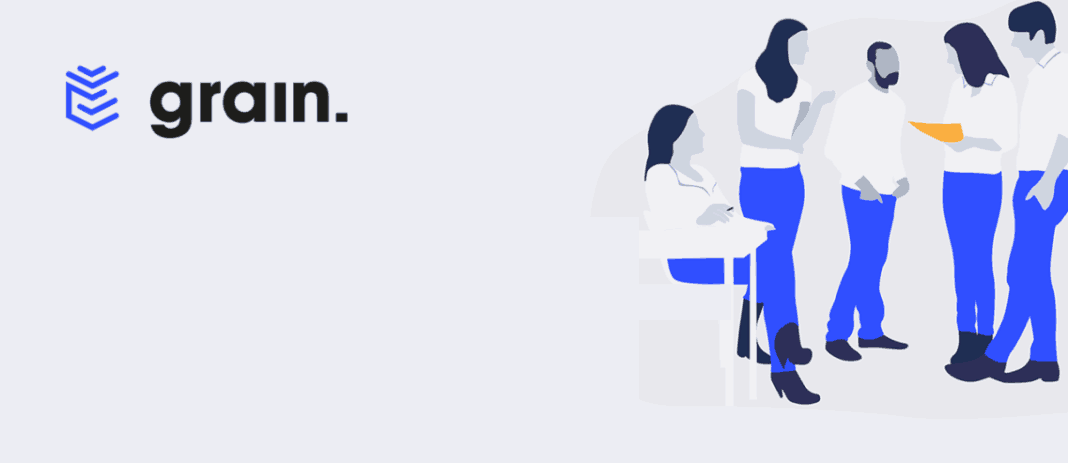The world of work is changing rapidly, and the rate of change is only expected to grow. Already, businesses are cutting back on their full-time staff, increasingly relying on armies of freelancers and contingent workers to get the job done.
Many in this so-called gig economy have been pleased with the result, valuing the freedom and flexibility of on-demand work and reveling in the unlimited earning potential it can provide. Unfortunately, however, gig work comes with some serious downsides, deficiencies the team at GRAIN are promising to address.
The world of work may be modernizing at a record pace, but work agreements remain stuck in the past. By addressing the deficiencies in these antiquated work agreements, GRAIN hopes to capitalize on the move toward a more decentralized labor model. By relying on the power of the blockchain, GRAIN hopes to change the way business is done in the 21st century.
We spoke with the GRAIN CEO, Onno Hektor:
“GRAIN will be the backbone of modern work agreements. Our blockchain technology is targeted at software companies and job-portals who need a reliable, scalable and transparent way of processing work agreements.”
By focusing on these online job portals and software companies, GRAIN hopes to change the way work agreements are made, and the way professionals are paid.
The need for this kind of modernization is all too apparent. The nature of the hiring process has changed rapidly in recent years, creating challenges for HR professionals and job seekers alike. By building a solution, known as Flexentral, GRAIN is attempting to change the face of the modern workplace.
Flexentral was developed a little over two years ago, and it is a software solution designed to handle the HR process from end to end. From the posting of an open job to the handling of responses and resumes, GRAIN and Flexentral are automating what had been a time-consuming and labor-intensive process. Hektor explained their choice to use blockchain:
“When considering how to build the transactional layer, we decided to use blockchain technology. Long story short, we took out the whole transactional layer and launched it as a separate component that other companies could implement.”
The blockchain concept has gotten a lot of press lately, but this implementation is very different. By focusing on what had been an underserved niche, GRAIN is creating a software solution for job portals, temporary work agencies and other companies where the lack of qualified workers can create bottlenecks and inefficiencies.
Given the need for this type of service, it is surprising that so far GRAIN seems to have this space all to itself. While companies are doing similar things, most of them are focused on creating freelance marketplaces – think of websites like Upwork and Freelancer. Unlike those competitors, GRAIN is focused on something different.
The GRAIN CEO describes the goal of the firm this way:
“The way our business model works is that we charge a small fee for every transaction. This fee is shared between Grain and the transaction partner. That means that if an Upwork.com, for example, would use our solution and be a transaction partner, they would get a (small) commission for every transaction their users have.”
Instead of paying a processing fee for every payment, the platforms in question can turn what was once an expense into an ongoing revenue generating activity. And by relying on the blockchain, the resulting transactions gain a new level of transparency.
The blockchain concept has been covered here before, but GRAIN is making unique use of this emerging technology. The creators of GRAIN feel that the crypto model provides a unique set of benefits in the digital 21st-century hiring economy. By creating an honest and transparent platform for every transaction, this new model should be able to lower costs. At the same time, the crypto model facilitates the exchange of money between the two parties and does so in a faster and more efficient manner.
Perhaps even more importantly, the GRAIN model is designed to shield workers and the companies that hire them from the volatility of the cryptocurrency market. One need look no further than the recent price action of Bitcoin and its competitors to see how valuable this shielding can be. Hektor explains:
“The real world still operates in fiat. Everyone’s salary is denoted in fiat. And very few people would be excited to be paid exclusively in a cryptocurrency, because you don’t know how much your compensation would be worth four weeks from now if I told you your monthly salary would be 1 BTC from now.”
Hektor has identified the volatility of the cryptocurrency market as one of the major challenges for GRAIN. When work agreements are made, the two parties must agree on a complex system of compensation, and they must do so days, weeks or even months in advance. If the payment were made in cryptocurrency, the value of that eventual compensation could be far different from what the two parties initially agreed to.
To be a viable solution for the long term, GRAIN must be able to handle that inherent problem. In order to do that, the company has developed a unique solution – an insurance mechanism that can guarantee the value of compensation in fiat currencies, providing a stable store of value and making agreements both easier and more valuable.






